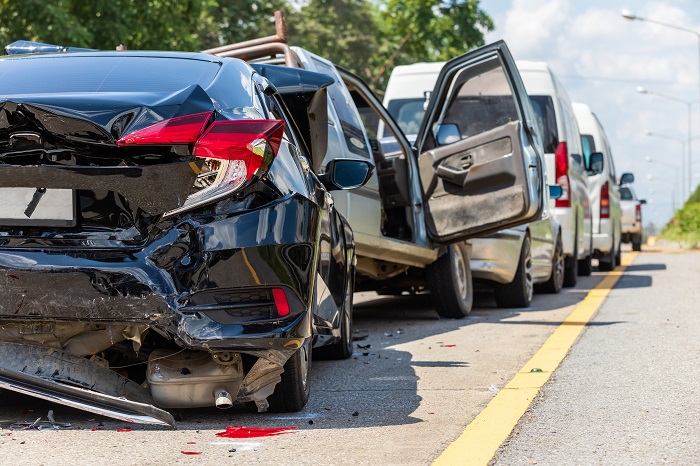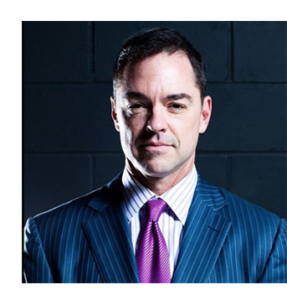Imagine walking down a shared driveway or driving across a private road that cuts through someone else’s property. Suddenly, you trip on broken pavement or your car slides because of poor maintenance — and you’re injured. Who is responsible for your losses?
In California, liability for accidents on an easement can be complicated. Property owners, easement holders, and even third parties may share responsibility. Understanding how easements work and who is legally obligated to maintain them is critical if you have been injured.
This guide explains:
- What an easement is and the types recognized under California law
- Who may be liable for accidents on easements
- What kind of attorney can help with these cases
- How liability is proven and what evidence matters
- Steps to take if you or a loved one is injured
What Is an Easement in California?
An easement is a legal right to use someone else’s land for a specific purpose. The owner of the land burdened by the easement is called the servient estate, while the person or entity who benefits is the dominant estate.
Types of Easements in California
- Express Easement – Created by written agreement or deed.
- Easement by Necessity – Established when a parcel would otherwise be landlocked.
- Prescriptive Easement – Gained through open and continuous use of another’s land without permission for a set period.
- Easement in Gross – Benefits a person or company, not another parcel of land (often used by utility companies).
The way an easement is created — and the terms written into the agreement — often plays a major role in determining liability.
For more context on property owner duties, see our post: If Someone Gets Hurt on My Property, Am I Liable?
Who Is Liable for an Accident on an Easement in California?
Liability depends on the easement’s terms and the specific circumstances. Parties who may be held responsible include:
- Servient Estate Owner (Landowner)
- May be responsible for maintaining safe conditions on their land.
- Can be liable if hazards exist and they fail to repair or warn visitors.
- May be responsible for maintaining safe conditions on their land.
- Easement Holder (Dominant Estate Holder)
- If an easement agreement requires the holder to maintain the easement area, they may be responsible for accidents.
- Utility companies often fall into this category when they fail to maintain equipment or land.
- If an easement agreement requires the holder to maintain the easement area, they may be responsible for accidents.
- Shared Liability
- Both the property owner and easement holder may share liability if each had a duty to act.
- Under California’s comparative fault law, liability can be divided based on each party’s percentage of responsibility.
- Both the property owner and easement holder may share liability if each had a duty to act.
- Other Parties
- Contractors, property managers, or government agencies may also be held liable if they were tasked with upkeep or repairs and failed in their duties.
- Contractors, property managers, or government agencies may also be held liable if they were tasked with upkeep or repairs and failed in their duties.
Learn more about your rights on our San Diego Premises Liability Lawyer page.
Legal Duties and Obligations
Under California premises liability law, property owners and easement holders must use reasonable care to keep areas safe. Key obligations include:
- Maintenance – Repairing hazardous conditions like broken pavement, fallen trees, or uneven surfaces.
- Warnings – Posting visible warnings if a hazard cannot be immediately fixed.
- Comparative Fault – Injured individuals may share some responsibility if they ignored warnings or acted carelessly. In such cases, damages may be reduced but not eliminated.
- Easement Agreements – Many agreements specify who must handle maintenance and repairs. Courts look closely at these documents when deciding liability.
How Do You Win an Easement Accident Case?
Winning an easement accident case requires strong evidence. This may include:
- Easement agreements or property records showing responsibility for maintenance
- Photos or video of the accident scene
- Witness statements confirming hazardous conditions
- Repair logs or inspection records showing negligence
- Medical records linking the injury to the accident
California law also imposes strict statutes of limitations on filing personal injury claims. Missing these deadlines may prevent recovery. For examples of past outcomes, visit our Case Results.
Common Easement Accident Scenarios
- Shared Driveway – A cracked surface causes a visitor to fall. Liability may rest with the landowner, easement holder, or both.
- Utility Easement – Poorly maintained power lines or pipes cause injury. The utility company may be held responsible.
- Public Access Easement – A trail or private road is open to the public, but hazards are left unaddressed. Liability depends on ownership and maintenance agreements.
- Construction or Maintenance Work – Contractors hired to maintain the easement fail to do their job safely and may be liable for resulting injuries.
What Type of Attorney Do I Need for an Accident on an Easement?
Easement accident claims often involve premises liability, property law, and personal injury issues. You need an attorney with experience in all three areas. Our team has handled complex cases involving homeowners, utility companies, and government agencies.
What to Do if You Are Injured on an Easement
If you or a loved one suffers an injury on an easement:
- Seek medical attention immediately for your health and documentation.
- Report the incident to the property owner, easement holder, or relevant authority.
- Document the scene with photos, video, and notes.
- Collect evidence such as easement agreements, property deeds, or insurance policies.
- Contact a lawyer before speaking to insurance companies.
Frequently Asked Questions
Can I still recover compensation if I was partly at fault?
Yes. Under California’s comparative fault system, you may still recover damages, but your compensation will be reduced by your share of responsibility.
Does homeowner’s insurance cover easement accidents?
Often, yes. Many policies cover liability for accidents on the insured’s property, though coverage depends on the policy and the easement agreement.
What if there is no written easement agreement?
Liability can still be established under general premises liability law, but disputes are more complex without a written contract.
Can the government be held liable for easement accidents?
Yes, if the easement involves public land or infrastructure. However, claims against government entities have strict notice requirements and shorter filing deadlines.
How long do I have to file a claim?
In California, the statute of limitations for most personal injury cases is two years from the date of the injury. Claims against government agencies may have deadlines as short as six months.
Need an Experienced Premises Liability Lawyer? Get Gomez
If you were injured on an easement in California, you should not have to navigate the complexities of liability on your own. At Gomez Trial Attorneys, our experienced San Diego premises liability lawyers can investigate your case, identify the responsible parties, and fight for the compensation you deserve.
Call us today at (619) 237-3490 or contact us online for a free consultation.







